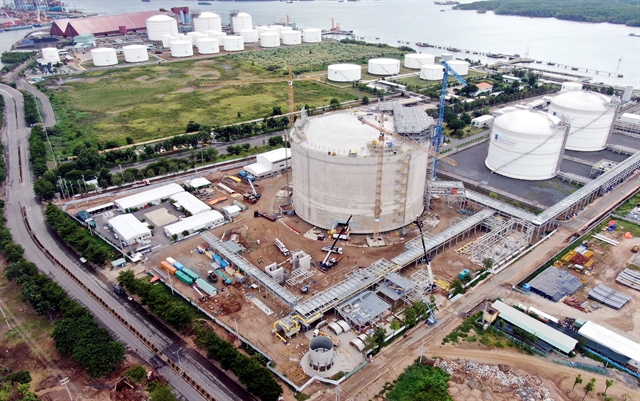PetroVietnam Gas (PV Gas) is prompting the completion of its infrastructure system to start importing LNG from 2022, compensating for a decline in domestic gas sources, and to promote the development of gas/LNG in Viet Nam.

PetroVietnam Gas (PV Gas) is prompting the completion of its infrastructure system to start importing LNG from 2022, compensating for a decline in domestic gas sources, and to promote the development of gas/LNG in Viet Nam, the company’s Board of Directors said.
The decision is based on Resolution 55-NQ/TW approved by the Politburo on February 11, 2020 on Viet Nam’s national energy development strategy to 2030.
Currently, PV Gas is focusing on the construction of a storage project with a capacity of one million tonnes of LNG/year in Thi Vai. So far, Thi Vai LNG warehouse project is about 90 per cent complete. It is expected to be completed and put into operation in the third quarter of 2022. Other projects, including an LNG station for tankers in Thi Vai, are also being implemented.
PV Gas is also investing in infrastructure for importing, storing and distributing LNG nationwide. Of which each region will be supplied by three LNG hubs, including the Thi Vai LNG storage project in the south, Son My LNG storage facility in the central region and storage in Quang Ninh/Hai Phong/Thanh Hoa in the north.
To utilise the gas infrastructure system, PV Gas plans to turn LNG terminals into mixed ports with additional functions of importing and exporting liquid products and logistics services to provide services to customers.
Regarding LNG import sources, PV Gas focuses on preparing short and medium-term import sources. It has signed six matched sale-purchase agreement (MSPA) with LNG suppliers.
PV Gas became one of the five businesses with market capitalisation of over US$10 billion in November after its stock price rose 48 per cent since the beginning of this year and hit a record at VND125,000 per share in October, pushing the firm’s market cap to VND238.28 trillion ($10.54 billion).
In the last quarter, the company posted consolidated profit after tax of VND2.46 trillion, up 19.1 per cent year-on-year.
LNG is liquefied natural gas. With much smaller volume compared to natural gas, LNG is a convenient gas product for storage and transportation from the origin of production to markets.
LNG is used to serve the needs of power plants, industrial households and urban areas. Currently, LNG is also used as fuel for vehicles like ships, trains and heavy trucks to reduce environmental pollution. — VNS





